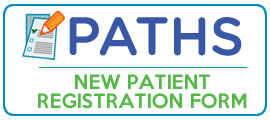What does a pharmacist do?
Pharmacists care for patients by managing medication therapy as an integrated member of a health care team, which includes physicians, nurses, and other health professionals. Pharmacists evaluate and monitor drug therapy to achieve specific outcomes and improve the patient’s quality of life.
What might a pharmacist do in a workday?
- take responsibility to assure that medications are used appropriately by patients.
- provide information to prescribers and other health professionals about medications and proper drug treatment.
- improve patients’ understanding of the appropriate use of medications.
- provide medication therapy management services.
- maintain comprehensive computerized records of all medications dispensed.
- increase patients’ adherence to prescription medication regimes.
- reduce the risk of adverse events and interactions associated with medications.
- determine the identity and strength of medications.
- advise patients about the use of nonprescription and herbal medicines.
- refer individuals to physicians, dentists, or other health practitioners.
- oversee the activities of pharmacy technicians and pharmacy interns.
- teach in schools of pharmacy.
Pharmacists may perform other duties depending on their place of employment.
- Community pharmacists or retail pharmacists also perform professional, managerial, and administrative functions.
- Consultant and long-term care pharmacists regularly review drug therapy programs of nursing home patients.
- Hospital pharmacists advise the medical staff on the selection and effects of drugs, perform administrative duties, teach, conduct research, and work in patient care areas as members of a medical team.
- Nuclear pharmacists work with radiopharmaceuticals (drugs that contain radioactive materials).
- Pharmacists in corporate/industrial settings may research and develop new drugs or supervise personnel, quality control, packaging, or medical sales.
- U.S. and state governmental pharmacists regulate the profession to preserve and protect public health in various settings such as: State Board of Pharmacy and Department of Health, U.S. Food and Drug Administration, and the U.S. Public Health Service.
- Professional association pharmacists offer services to promote health care, professional growth, and advocacy.
Depending on their place of employment, pharmacists may work alone, with other pharmacists, or as a member of a team of health care professionals.
How much does a pharmacist earn?
- $75,000 - $110,000
How do I become a pharmacist?
Students intending to pursue a career in pharmacy should prepare by taking the most challenging high school courses available in science, math and English. The Pharmacy College Admission Test (PCAT) is required for acceptance to two-thirds of schools and colleges of pharmacy.
Pharmacists earn the doctor of pharmacy degree, which requires a minimum of six years of study. All pharmacists must pass an examination known as the NAPLEX and have earned at least 1,500 hours of practical experience in a pharmacy in order to obtain a license.
Students planning on specializing in a practice of pharmacy should complete postgraduate residency or fellowship training and consider board certification.
Where else can I learn about becoming a pharmacist?
Virginia Pharmacists Association
2530 Professional Road / Richmond, VA 23235
tel: (804) 285-4145 or (800) 527-8742 / web: www.vapharmacy.org
Virginia Society of Health-Systems Pharmacists
P.O. Box 2567 / Fairfax, VA 22031
9610 Jomar Drive / Fairfax, VA 22032
tel: (800) 613-VSHP (8747) / web: www.vshp.org
National Community Pharmacists Association
100 Daingerfield Road / Alexandria, VA 22314
tel: (703) 683-8200 / web: www.ncpanet.org
State License Requirements for Pharmacists:
A license is required to practice as a pharmacist in the state of Virginia. For more information on licensure, applications and forms, visit www.dhp.virginia.gov/pharmacy.
Virginia Board of Pharmacy
Perimeter Center
9960 Mayland Drive, Suite 300 / Henrico, VA 23233
Phone: (804) 367-4456 / Email: pharmbd@dhp.virginia.gov.


